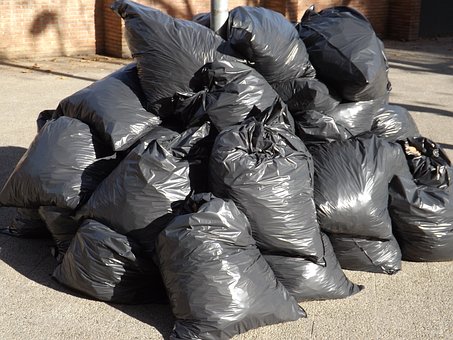Welcome to KDS Environmental
Reliability
100%
Affordability
100%
Professionalism
100%
Reputation
100%
 It is clear that the quantity of household waste produced is increasing every year at a disconcerting rate, and government are under pressure to broaden existing landfills or develop new ones to accommodate the waste that is being produced.
It is clear that the quantity of household waste produced is increasing every year at a disconcerting rate, and government are under pressure to broaden existing landfills or develop new ones to accommodate the waste that is being produced.
What is Hazardous Household Waste?
Household waste is leftover from household products. Hazardous household waste are household products which contain chemicals that have the potential to affect plants, the health of humans and animals and are harmful to the environment when handled incorrectly
Improper management of household waste has the potential to be extremely harmful to the environment, people, and animals. What many of us may not understand is that many of those typical household products contain destructive, harmful, or combustible chemicals that can be hazardous to the environment if not dealt with or managed correctly.
Hazardous household waste should not be dealt with in the same way as regular waste. For instance, fuel can be buried in the ground, can affect rivers, and find its way into drinking water. The hydrocarbons in motor oils or pesticides have the potential to bio-accumulate in freshwater fishes and can find its way in the food cycle. Burning hazardous waste results in the release of harmful chemicals and fumes in the air. When released into the environment, these chemicals are dispersed over large locations, consequently affecting the health of individuals over a larger area.
A few of these chemicals stay in the systems of plants and animals for a very long time and may go into the food cycle when the affected plants and animals are taken in.
 Bioaccumulation of hazardous compounds in the systems of plants, animals, and humans has the potential to affect their reproductive lives, growth, impair the function of different organs such as the liver and kidneys, affect the functioning of the central nervous systems and immune systems of human and animals and some have been listed as known carcinogens.
Bioaccumulation of hazardous compounds in the systems of plants, animals, and humans has the potential to affect their reproductive lives, growth, impair the function of different organs such as the liver and kidneys, affect the functioning of the central nervous systems and immune systems of human and animals and some have been listed as known carcinogens.
How Can You Tell a Product is Hazardous?
Read the labels of products. In Gray Crossing and other parts of the country, labels are required for all products. These should provide information on the constituents of the products, including symbols and words, to indicate the hazard to animals, humans, and the environment if mishandled.
How To Tell If Products Are Hazardous?
Always read the label of products in your household and make it a habit of reading the labels of a product before deciding to buy them.
What Can You Do to Handle Hazardous Waste?
Purchase Eco-friendly Products – Experts concur that the best way to control waste is to not produce it in the first place. You can begin by avoiding the purchase of products which contain chemicals that are hazardous to humans, animals, and the environment. Purchase those products that are naturally degradable or friendly to the environment.
Safe Product Storage – Ensure that hazardous products are kept in a safe place, that their containers are not damaged, do not have any leakages to lower the threat of contaminating water sources, land, humans, animals, plants, and the environment. Ensure that destructive products like acids are stored in separate locations from other hazardous products.
Check products frequently to ensure that there are no leakages and broken lids or bulging sides.
Always store products in their initial containers to avoid unintended usage.
Ensure that these products are stored in a place where children and animals have no access to them.
Disposal of Products – Disposal of products should constantly be the last resort. Why? Because there are no safe methods of getting rid of hazardous waste. You can avoid the problem of hazardous waste disposal by either picking naturally degradable products, recycling the product, giving the excess products to friends, neighbors, or family or acquiring smaller volumes of the product.
 If, however, disposal is unavoidable, then you should get rid of the waste in the way recommended on the label.
If, however, disposal is unavoidable, then you should get rid of the waste in the way recommended on the label.
Although there are laws to manage the handling and use of large amounts of hazardous waste, the existence of laws to manage the typical small quantities created at the household is non-existent. For this reason, the responsibility for the management of hazardous waste falls directly on the shoulders of the hazardous waste generators.
Protection of the environment can only occur when you contribute in finding innovative ways to re-use, recycle, or lower waste. This is essential if we are to secure the environment and health of future generations. Remember that Waste Management is Your Business, My Business, Our Business.
if you are in Gray Crossing or Plummer Crossing, Unity, Sunnyside, Denhawken, Stockdale, Kosciusko, Sutherland Springs, Poth, Alum, Grass Pond Colony, call us now!
We are experts in environmental clean-up, and we can help you with eradicating dangerous items in your home. Our number one goal is to ensure that the environment is safe for everyone to live in, and your health is protected. Get in touch with us today and get a free, no-obligation quote.
We are the best eco-friendly company you can trust in Plummer Crossing, Unity, Sunnyside, Denhawken, Stockdale, Kosciusko, Sutherland Springs, Poth, Alum, Grass Pond Colony and Gray Crossing.